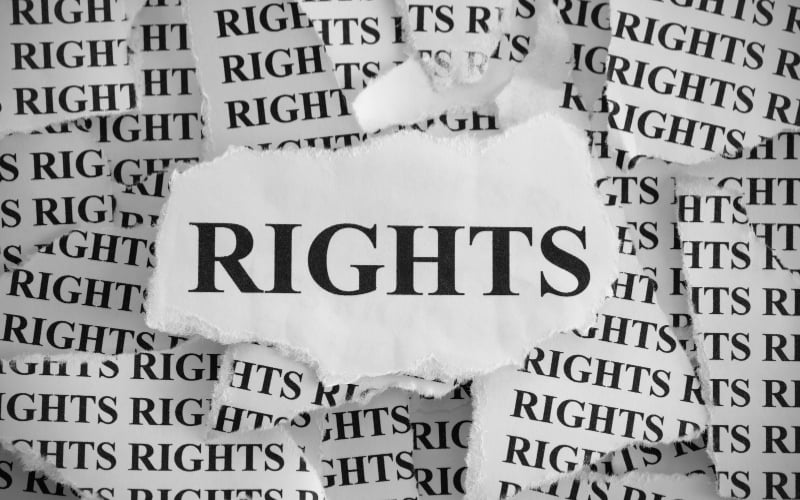Last Updated on March 18, 2024 by Kelvin Nielsen
A lease is a contractually binding legal document. Basically, it helps spell out the rights and responsibilities each party has. A lease can either be made orally, through a written text, or simply after payment of rent, depending on a specific state.
In the state of Alabama, a lease between a landlord and tenant is established after the former accepts a rent payment. This is pursuant to Title 35 of Chapter 9A of Alabama laws. This means that you’d, as tenant, have all inherent rights and responsibilities as per Alabama landlord-tenant laws.
8 Alabama Tenant Rights without a Lease
Basically, in Alabama, payment of rent grants you equal rights as a tenant who’d sign a lease. The following are some of the rights you’d be able to enjoy.
Right #1: Right to live in a habitable property.
Landlords have a responsibility under the Alabama landlord-tenant law to provide their tenants with a property that abides by the state’s safety, health and structural codes. The legal requirement, commonly known as the “implied warranty of habitability” is primarily governed by AL Code § 35-9A-204.
Among other things, you have a right to be provided with safe floors, smoke detectors, trash cans, and working electrical and plumbing systems.
In addition, landlords have a maximum of 14 days to respond to repair requests from tenants. If your landlord fails to do so, you’ll have three options to pursue. One of the options would be to file a lawsuit. The other option would be to report the matter to local public officials. And the third option would be to terminate the lease and move out.
Right #2: Right to a proper eviction process.
Even without any written agreement, your landlord cannot just evict you from the property anyhowly. They cannot try to force you to leave by doing any of the following things.
- Remove your belongings from the unit.
- Shut down your utilities to make your life unbearable so you can leave.
- Lock you out of the unit.
These are examples of “self-help” eviction tactics and are all illegal as per Alabama laws. The only way a landlord can evict you in Alabama, as do in all other states, is through a court order.
And even at that point, it’s only the sheriff that can forcefully evict you from the premises.
Right #3: Right not to be harassed.
Aside from the three examples of “constructive eviction” aforementioned, landlord harassment can also occur in other ways as well. The following are a few examples.
- Sexual harassment by your landlord.
- Physical or verbal threats.
- Failure by the landlord to provide you proper notice.
- Creation of nuisances meant to disrupt your peace and quiet enjoyment.
- Refusal by the landlord to accept a rent payment.
- Filing of false or exaggerating eviction charges.
All forms of landlord harassment are illegal in the state of Alabama. If you find yourself in such a situation, you should report the landlord right away.
Right #4: Right to be notified prior to entry.
A landlord in Alabama must provide their tenant with a 2 days’ advance notice prior to entering their rented premises. In addition, your landlord must have a legitimate reason for the entry. The following are common reasons for landlord entry.
- To respond to an emergency.
- Under a court order.
- To show the unit to prospective tenants, buyers, or lenders.
- In case of property abandonment.
- To inspect the unit.
The time of entry must also be during normal business hours or as agreed by both parties.
Right #5: Right to be treated fairly.
In Alabama, a tenant without a lease has a right to fair treatment from their landlord, as well. You cannot discriminate against them on the basis of the following protected classes.
- Race
- Color
- Nationality
- Religion
- Familial status
- Disability
- Sex
So, for instance, it’d be illegal for a landlord to ask you the following questions during the tenant screening process. Where are you originally from? Are you married? Is that a service dog? How many children do you have? Which church do you go to?
If you suspect your landlord has discriminated against you, you can report them to the nearest HUD office for action.
Right #6: Right to the return of your security deposit.
Did your landlord require you to pay a security deposit when you moved in? If so, you’re entitled to its return, less any allowable deductions, with or without a lease. The following are examples of deductions a landlord can make to a tenant’s deposit in Alabama.
- To clear unpaid rent.
- To cater for any damages exceeding normal wear and tear.
The time limit for returning a tenant’s deposit in Alabama is 60 days after a tenant moves out.
Here is a guide on Alabama security deposit rules.
Right #7: Right to proper notification prior to lease termination.
In a period tenancy, either party can terminate the lease by offering the other a proper notice. If a landlord seeks to terminate your lease, they must provide you any of the following notices depending on the rent payment frequency.
If you pay rent on a week-to-week basis, your landlord must provide you a 7 days’ advance notice. And if you pay it on a month-to-month basis, your landlord must serve you a 30 days’ advance notice.
Right #8: Right to break the lease for certain legally justified reasons.
In Alabama, a tenant is legally allowed to break their lease for the following circumstances.
- If starting active military duty. (AL Code § 35-10-70)
- If living in an uninhabitable rental property. (Ala. Code § 35-9A-204)
- In case of landlord harassment.
Please note that you must still pay rent and fees for the remaining lease period even for the aforementioned reasons. The only exception is if the landlord find a replacement tenant within a reasonable time after you move out.
Here is a guide on legal justifications to break a lease in Alabama.
Sources: Alabama Landlord Tenant Law, The Alabama Tenant Handbook, Nolo.com.
Disclosure: The content herein isn’t a substitute for advice from a professional attorney. It’s only meant to serve educational purposes. If you have a specific question, kindly seek expert attorney services.

Hi, I’m Kelvin Nielsen, an experienced landlord and accomplished real estate lawyer. My focus is on answering your questions about renting in the hopes of making your life as a renter or a landlord a bit easier.







